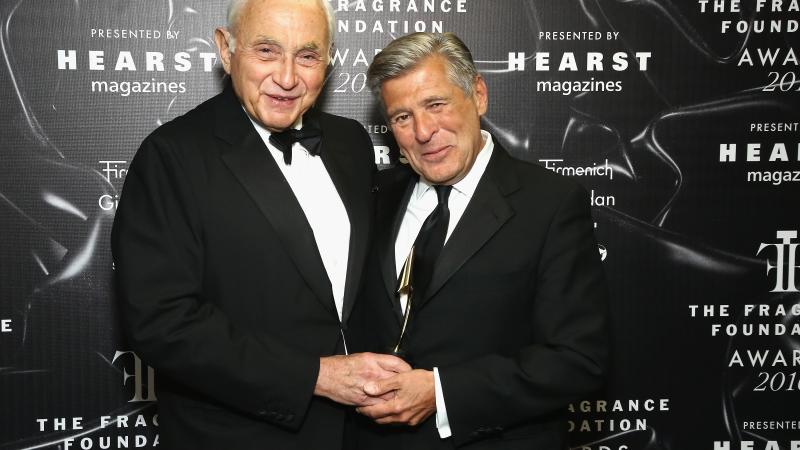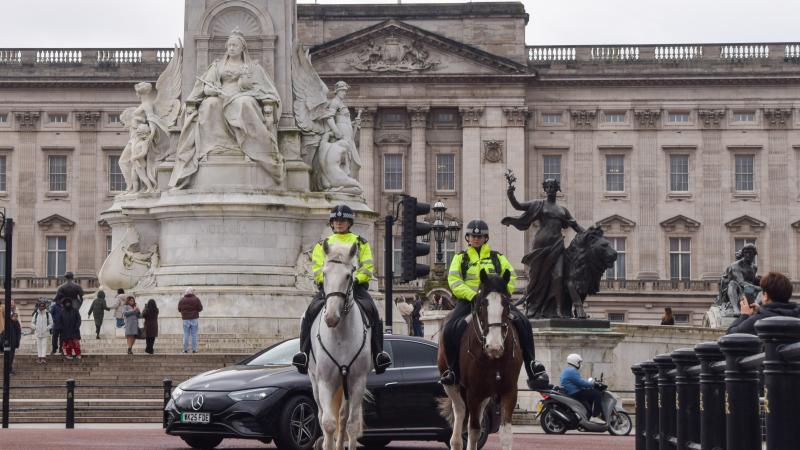Hunter Biden demands public hearing, Comer says behind closed doors first, teeing up subpoena fight
Hunter Biden has agreed to testify before the Oversight Committee, but only if the hearing is public. Oversight Chairman Comer refused the demand, saying that the first son has to follow the same rules as everyone else, setting up a potential subpoena fight. The problem for the Committee is that the process with the most likely chance of success may take the longest.
Hunter Biden has agreed to appear before the Oversight Committee, but on one condition: that the hearing be held in public. Chairman Comer responded in a posting on X, saying Biden must appear for a closed door deposition first, and offered to let him testify publicly at a later date, setting up a showdown between Congressional investigators and the first son.
If the impasse is not broken, Congress can move to enforce its subpoena in several ways. Republicans can hold Biden in contempt or file a civil suit to compel him to testify. These options require the Department of Justice or the courts to enforce, respectively. But, if Republicans want Hunter Biden’s testimony soon, investigators may have to acquiesce to his lawyer’s demands for a public hearing or awaken a long dormant Congressional power to compel the younger Biden to appear.
In the modern day, there are two primary methods that Congress uses to enforce its subpoenas, through criminal contempt referrals and civil enforcement. Each of these options presents potential pitfalls for the House Oversight Committee as it seeks to pursue its wide-ranging impeachment inquiry in President Joe Biden’s connection to what they allege is a Biden family influence peddling scheme.
If a witness does not comply with a Congressional subpoena, the House or Senate may hold the witness in criminal contempt under a 1857 statute that classified a failure to comply as a criminal offense, according to the Congressional Research Service (CRS). This is what is referred to when a member threatens to hold a witness in “contempt of Congress.”
This 19th Century statute provides that after a witness refuses to comply with a subpoena, the committee would report this to the Speaker of the House, who will then refer the matter to the Department of Justice for prosecution. And, this is where Congressional Republicans may hit their first roadblock.
In the past, when Congress has held witnesses in contempt, and referred the matter to an executive branch controlled by the opposite party, the DOJ has asserted its right to exercise discretion on whether or not to prosecute the offense, according to CRS.
For example, in 2012, the Obama’s Attorney General, Eric Holder, refused to comply with a House Oversight Committee subpoena for documents relating to the "Fast and Furious" operation—a Bureau of Alcohol, Tobacco, Firearms, and Explosives operation that permitted illegal firearms to be purchased in order to track an gun trafficking operation. Holder was subpoenaed for any documentation of misleading communications surrounding the operation.
Holder failed to comply with the subpoena and was subsequently held in contempt. In a letter, the DOJ told the congressional investigators that it would not act on the criminal contempt referral, citing both executive privilege and prosecutorial discretion.
Despite the courts' ruling in most cases that any executive privileges do not supersede Congress’ oversight powers, the delays caused by litigation may derail the Oversight Committee’s investigation, at least temporarily.
The other method to enforce a Congressional subpoena is through a civil suit. This process involves “seeking a civil judgement declaring that the recipient is legally obligated to comply,” according to CRS. Like criminal contempt, civil enforcement requires another branch of government to secure the enforcement of the subpoena: the judicial branch, through the federal courts.
Yet, unlike criminal contempt, a civil suit has “generally has the benefit of securing compliance with the congressional subpoenas,” the CRS writes. This means the court can order the witness to provide the information that the Committee seeks. Congressional Republicans pursued this option against Attorney General Holder after he refused the subpoena. Though the court eventually ruled that the documents congressional investigators sought from Holder had to be turned over, the ruling came after the Obama Administration had left office, revealing the shortcomings of this method.
You can read the CRS report here:
Unless Congressional Republicans want to acquiesce to Lowell’s demands for a public hearing, there is only one more avenue for their investigation without going through the DOJ or the courts. The third option is a long dormant power of the Legislative Branch, is known as inherent contempt power.
Throughout American history, Congress routinely used its own power granted by the Constitution to enforce legislative subpoenas and prevent obstruction of their initiatives. According to CRS, the inherent contempt power permits each house to arrest and detain an individual who is found to be be obstructing Constitutionally defined duties and responsibilities of the legislature, as the Supreme Court ruled in Marshall v. Gordon (1917).
The inherent contempt powers of Congress were last used in 1934 when the Senate arrested lawyer William MacCracken Jr., a former Assistant Secretary of Commerce, who was cited to appear before Congress. The Supreme Court upheld Congress’ expansive power when MacCracken challenged his arrest and detention.
As of today, the inherent contempt power remains a rarely used but powerful tool in the hands of Congress to compel testimony.
Former Republican Representative Jason Chaffetz—who was involved in many Oversight investigations into the Obama Administration first as a member and then as Chairman—told Just the News Tuesday that House investigators should hold to their plan if the Oversight Committee and Hunter Biden’s attorney remain opposed on the format of the testimony or Biden refuses to appear.
“Comer should hang tight and do what he wants to do, when he wants to do it,” Chaffetz said. “It’s the proper order and way that I would do it,” he explained. “Democrats had no problem doing it this way when they were in charge,” he said, referring to the norm of holding a closed doors, transcribed interview before a public testimony.
The problem comes when a witness refuses to comply with a subpoena, a situation where enforcement is put in the hands of the Department of Justice, potentially undermining the investigation if the DOJ cites prosecutorial discretion to avoid prosecuting the younger Biden for possible contempt, Chaffetz said.
As for the inherent contempt powers, Chaffetz said “They could [use it], but they do not have the political will to do it.”
In response to Lowell’s demand that Hunter Biden be given a public hearing instead of starting with a closed door testimony, Chaffetz highlighted an apparent double standard. “I would argue, too, that the Democrats set the standard,” Chaffetz said of Congressional investigations involving presidential family members. “They dragged Trump’s family in front of Congress and had nothing. It is more common than not to do a deposition before a public hearing. That is normal course and at the discretion of the Chairman,” Chaffetz explained.
“The public hearing can come after. They brought Donald Trump Jr. out there, hour after hour, for a meeting he had with someone that he didn’t know,” Chaffetz recalled, referring to the former President’s eldest son’s previous testimony before a Senate committee over his President Trump’s alleged Russia connections. The Mueller report eventually concluded that there was no “Russian collusion.”
Hunter Biden’s lawyer, who wrote to the committee on Tuesday, explained why he was requesting a public hearing for his client. “We have seen you use closed-door sessions to manipulate, even distort the facts and misinform the public,” Lowell wrote. “We therefore propose opening the door. If, as you claim, your efforts are important and involve issues that Americans should know about, then let the light shine on these proceedings,” he continued.
You can read Lowell’s letter to the committee below:
Abbe Lowell, lawyer for Hunter Biden, did not respond to a request for comment from Just the News.
Chairman Comer responded shortly after the letter was received, emphasizing that Hunter Biden should be expected to follow the same rules as any other witness. The Oversight Chairman did not respond to a request for comment from Just the News.
“Hunter Biden is trying to play by his own rules instead of following the rules required of everyone else. That won’t stand with House Republicans,” Comer said in his statement posted to X. “Our lawfully issued subpoena to Hunter Biden requires him to appear for a deposition on December 13,” he continued.
“We expect full cooperation with our subpoena for a deposition but also agree that Hunter Biden should have opportunity to testify in a public setting at a future date,” Comer said.















